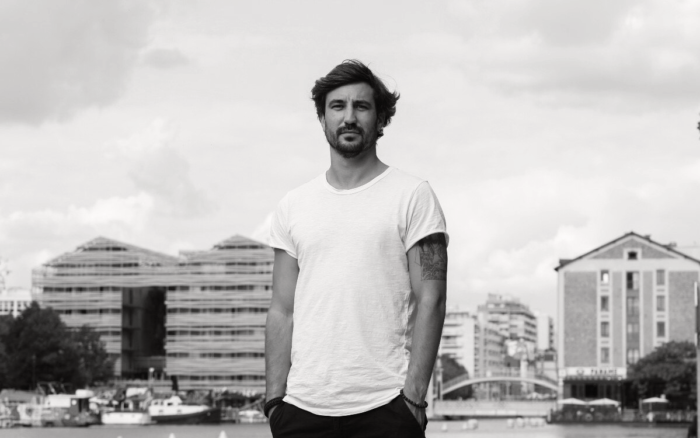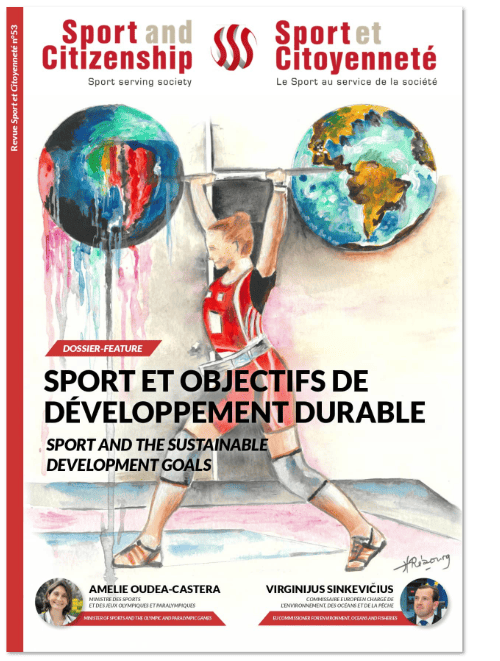“It is vital to make more use of sport in schemes for education about the environment”
Surfrider Foundation Europe was founded over 30 years ago by surfers faced with water pollution and is now an acknowledged force in the fields of environmental protection and education about sustainability. In the opinion of Yann Leymarie, in charge of “Sports” at the NGO and coordinator of the European project Green Sports Hub Europe, the problems require a paradigm change in how the sector functions.
 You are in charge of sport issues at Surfrider Foundation Europe. What are the Foundation’s aims, and how do you mobilise sport?
You are in charge of sport issues at Surfrider Foundation Europe. What are the Foundation’s aims, and how do you mobilise sport?
YL: The NGO was founded in 1990, when surfers got together to defend the site of their sport when they had been ill after sessions in the water. Protecting the ocean, the coast, lakes and rivers is in our DNA, but the scope of our activities has widened beyond the simple question of aquatic waste, with real expertise on water quality, the health of users, coastal management, and more generally, climate change.
Sport and the environment are interconnected. Sport sees climate change happening, but it is also partly responsible, because sporting activities, even outdoors, are not always good. How do you think we can reduce sport’s negative impact on the environment?
YL: We have seen a fairly clear demand for change towards more responsible practices. We hold regular discussions with several sport federations, clubs and also users. They explain how they do sport, their difficulties and the modifications they envisage. On our side, we provide technical knowledge to implement these. This approach is important for changing habits and behaviour. It involves combating the lack of equality between federations, because they do not all have the resources to put in place strategies or actions against climate change.
Each year, 8 million tons of plastic waste end up in the ocean. Water quality is deteriorating. What can be done about this?
YL: The first challenge is to find a concerted approach uniting all the local actors in this area. We are fighting for continuous analysis of water quality, not just for swimming but for all nautical activities. It is important to check that bacteriological thresholds are not exceeded, but it is vital to monitor new threats that have been identified. We are carrying out various activities on this front. The “Plastic Origins” project consists of intervening further upstream, in order to identify zones of plastic pollution in drainage basins. The “Curl” project involves placing sensors on the cuffs of swimmers and surfers so as to measure their level of exposure to chemical pollutants in coastal waters used for recreation. That is also the slant of our European manifesto for healthy water, through our “Healthy Waters” campaign.
You are campaigning for better education about the environment and sustainability. Do you think we could make more use of the “sport” media?
YL: In terms of the environment, sport and culture are the first to be sacrificed. Their power to transmit messages to the widest public is often forgotten. In my opinion it is therefore vital to rely more on sport in schemes for education about the environment. We are supporting the “L’Echappée bleue” project with our ambassador, the skipper Paul Meilhat. The idea is to introduce children to sailing, over several months, and raise their awareness of the importance of protecting aquatic environments. These children live in the Paris region and many of them have never seen the sea. How can they care about something they have never seen? The programme has been enormously successful, because it responds to societal and ecological problems. Another example is our collaboration with the Normandy Sailing League, to restructure their teaching module on respect for the environment.
“The sponsoring of tomorrow must inevitably be more responsible”
More and more sporting events claim to be eco-designed and environmentally responsible, or, at least, try to give meaning to their actions. How far do you think sport stakeholders have come in these matters?
YL: A lot of organisers contact us about changing their practices. At the European level these subjects are advancing fast. I think the main challenge is to rethink the economic model of sport. On one hand, sport stakeholders say they want to develop more responsible techniques, and on the other, they are quite dependent on established habits and traditional economic levers. Sport sponsorship is a telling example. How can they break with more or less responsible sponsors when the economic model in sport (professional and amateur) depends on these advertisers? Public opinion is now a strong ally. Tomorrow’s sponsorship will inevitable be more responsible.
You are coordinating the “Green Sport Hub Europe” project, which helps sport stakeholders who want to do more for sustainability. You have also published an enquiry into obstacles to change. What did you learn from this?
YL: Financial difficulties are obviously very evident, but the question of access to knowledge and resources also emerged clearly. Some sport structures do not consider it their role to get involved in these matters. So there is a real need for education and awareness-raising. Europe is an immense field of play and each country has its own identity. Portugal, for example, is well ahead in educating to protect the ocean. Bulgaria has one of the best returns for eco-cups, while Austria has an exceptional quality of water. That is why we need to improve the sharing of good practices, because if a solution to a problem is found in one place, we can move forward more quickly by applying it elsewhere. We are campaigning for a European sport observatory, which will make it possible to aggregate reliable, comparable data between States. We would then be able to act more effectively.
Interview by Sylvain Landa and Martin Richer
Find this article and more in our special magazine “Sport and ODD”!







 INSCRIPTION
INSCRIPTION
 CONTACT
CONTACT FACEBOOK
FACEBOOK